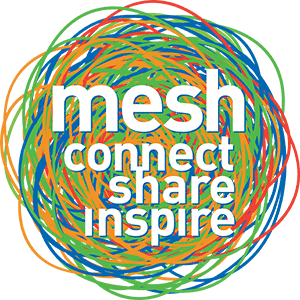Wearables may have finally found their breakthrough moment in 2014, and are going to be a major trend at mesh14. Here at Usability Matters, we sponsor mesh because they are always looking forward to the digital horizon, and that really resonates with us. But we’re a user-centred design agency, and in the frenzied atmosphere of rapid iteration and innovation, it’s important to remember that technology is supposed to work for people.
With that in mind, we looked at three different technology examples and asked the question: does this tech enhance the lives of its users?
Neil Harbisson
Neil Harbisson has total colour blindness – he can only see in greyscale. So in 2003, he had an electronic colour sensor connected to his skull that lets him “hear colour” through vibrations in his skull. He is a self-identified cyborg. As an artist, his electronic eye allows him to explore the entire colour spectrum as well as create both visual and audio pieces. Technology has changed the way he interacts with the world as well as how he perceives it at the most basic level.
Neil represents everything that wearable technology can be: effortlessly enhancing his life every day in a totally seamless way. He is but one example of what technology can do for people though. 3D printable casts as a lightweight alternative to standard casts make broken bones heal faster, and let patients be more comfortable while they heal. 3D printing is also being used in prosthetics, allowing for better prosthetics options at a fraction of the cost. Given that a prosthetic can cost upwards of $40,000, printed options make quality products more available to those who desperately need them. These are examples of technological advancement working for people, designed and created with people in mind. Tech and digital companies, start-ups, and marketers should aspire to mimic these examples: solving actual user problems, across every dimension, every day.
Enhanced monitoring
We have data, metrics, and quantitative-driven insight into every aspect of marketing. Increasingly, this ‘counting’ culture is spilling over into areas like fitness, weight management, and health monitoring. This has an awful lot of positives – diabetics can track their blood pressure, without risking white coat hypertension; fitness fiends can compare splits; and people everywhere can maintain a healthy weight. But at what point does personal data monitoring tip from informed to too informed? Alexandra Carmichael, who has worked for Qualified Self, quit tracking her personal data, saying “each day, my self-worth was tied to the data.” Plus, tracking and measuring personal KPIs can cause you to lose site of the larger picture: yes, you bike faster than your friends, but does that information actually make you (or them) healthier?
Photo Overload?
Our rate of photo documentation has skyrocketed over the last few years. It started with camera phones and has swelled due to the engagement of enriched content and photo-based social media sites like Snapchat, Pinterest, and Instagram. The selfie explosion has accelerated this trend with wearables that are increasingly photo-focused, like the Narrative Clip.
This trend could go one of two ways. On the one hand, seeing the world through someone else’s eyes could make us more empathetic. The Google Glass perspective has been used for this very purpose – to build a powerful story. Maybe mass photography is the answer to the impersonal chill of email? On the other hand, will selfie-ism contribute to the growth in narcissism we’re seeing in our culture? Are we so busy trying to document ourselves and our experiences that we’re not appreciating the world (and those) around us?
mesh14 is a time to discuss achievements like Neil, challenges like over-monitoring, and ideas like the selfie explosion. Hopefully it will inspire us all to push the digital frontier, without losing sight of why we’re doing it. We look forward to seeing you there!

